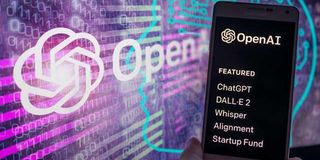ChatGPT a mind blocker

Most college students entirely depend on the app known as Chat Generative Pre-trained Transformer (ChatGPT), for studying and even during examinations.
Much as we are supposed to appreciate technological advances, let us the outcome.
Easy access to digital devices and the internet has altered not only the way of life socially but also education-wise. Unsurprisingly, many students use technology in their studies—unlike in the past, when the way of learning was through reading books and printed materials.
Most college students entirely depend on the app known as Chat Generative Pre-trained Transformer (ChatGPT), for studying and even during examinations. ChatGPT is a free research preview launched by OpenAI last November. Lecturers have expressed their concerns about the use of the app, eliciting questions about its benefits and disadvantages.
The app is easily accessible. So, many students opt for it instead of reading notes, researching or visiting the library like before, which has led to poor reading habits among them. And as is known of the human brain, when contended, it lags in working.
That the app can be used to answer a question directly blocks the ability of an individual to be thoughtful, creative or even innovative due to the dependency and reliance on it. A user simply types and awaits answers, then transplants them without even thinking on their own about a possible solution.
Rather than encourage users to think critically and creatively about a problem, ChatGPT provides ready-made answers that can be readily accepted. This can lead to a dependence on the app for problem-solving, hindering the development of analytical skills and limiting cognitive flexibility.
ChatGPT can also contribute to the confirmation bias that many people experience. This is the tendency to seek out information that confirms our beliefs and ignore information that challenges them.
Chat Gpt’s AI algorithm is designed to learn from user interactions; hence, it can reinforce a user’s biases. It can lead to a closed-mind approach to problem-solving and decision-making, which can be detrimental to personal and professional growth.
It should be monitored to avert complications.
Ms Mwangi is a student at Rongo University. [email protected].




